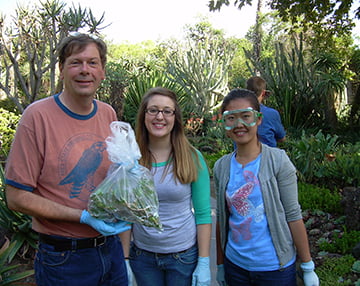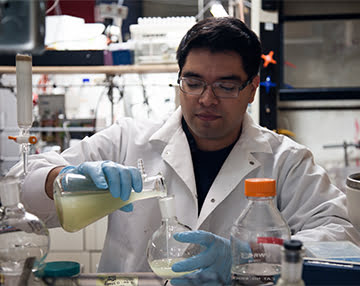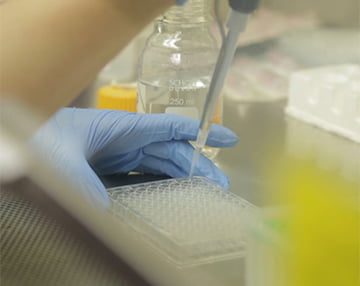


The emergence of microbial resistance to antibiotics makes the development of new antimicrobial strategies an urgent global health priority. Scientists at Oak Crest are working on a number of initiatives, summarized below.
- Probiotics and Prebiotics: While compelling in theory, these approaches largely have not met their potential to date. We are developing new, high-throughput methods to screen and evaluate candidates ex vivo prior to testing them clinically. We are building large repositories of primary bacterial and fungal clinical isolates that could act as candidate probiotics for a wide range of dysbiotic conditions ranging from bacterial vaginosis to skin disorder. We also are developing new approaches to delivering probiotic candidates, such as the first probiotic intravaginal ring.
- Plant Metabolites: Secondary metabolites from Euphorbia spp. (spruces) are known to possess a wide variety of medicinal properties. In collaboration with The Huntington Library, Art Collections, and Botanical Gardens, we are studying the antimicrobial properties of natural product mixtures extracted from Euphorbia plant material. Some of these mixture already have shown potent in vitro activity against HIV, HSV, Mycobacterium tuberculosis, and Plasmodium spp. (the unicellular parasites that cause malaria in their host).
- Phage Therapy: Prior to the use of antibiotics, starting with the discovery of penicillin, phage therapy was considered a promising approach. The therapeutic development of bacteriophages (phages, viruses that only infect bacteria) is seeing a revival in human medicine. We are isolating and sequencing a wide range of clinically derived phages with the view of investigating their potential to selectively target bacteria associated dysbiotic conditions ranging from vaginal infections to ENT chronic diseases.
